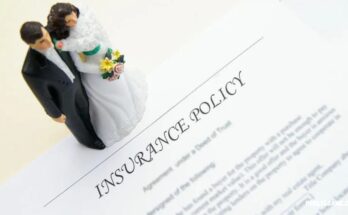Renters insurance is an essential financial safeguard for anyone renting a home or apartment. It protects your personal belongings and provides liability coverage in case of accidents or damage. Understanding the cost of renters insurance and the factors that influence it can help you find the best coverage at an affordable price. This guide will explore what renters insurance is, the factors affecting its cost, and tips for finding the most economical options.
What is Renters Insurance?
Renters insurance is a type of insurance policy designed to protect individuals who rent their living space. It covers personal property loss or damage due to events like theft, fire, and natural disasters. Additionally, renters insurance includes liability coverage, which protects you if someone is injured in your rented home or if you accidentally cause damage to someone else’s property.
Types of Renters Insurance Coverage
Renters insurance typically offers three main types of coverage:
Personal Property Coverage: This covers the cost of repairing or replacing your personal belongings if they are damaged or stolen. Items such as clothing, electronics, furniture, and appliances are included under this coverage.
Liability Coverage: Liability coverage protects you against legal claims if someone is injured while in your rented home or if you accidentally damage someone else’s property. It covers legal fees, medical expenses, and any court-awarded damages.
Additional Living Expenses (ALE) Coverage: ALE coverage pays for extra costs if your rental home becomes uninhabitable due to a covered event, such as a fire. This can include hotel bills, temporary rentals, and other living expenses.
Factors Affecting Renters Insurance Cost
Several factors influence the cost of renters insurance. Understanding these factors can help you manage and potentially reduce your premiums:
Location: The location of your rental significantly impacts the cost of insurance. Areas with higher crime rates or susceptibility to natural disasters may have higher premiums.
Coverage Amount: The amount of coverage you choose for your personal property and liability affects your premium. Higher coverage limits provide more protection but also increase the cost.
Deductibles: The deductible is the amount you pay out of pocket before the insurance coverage kicks in. Higher deductibles usually result in lower premiums, but it’s important to choose a deductible you can afford.
Building Security: Rentals with enhanced security features such as burglar alarms, smoke detectors, and secure entry systems may qualify for discounts on insurance premiums.
Claims History: Your history of insurance claims can influence your premium. A history of frequent claims may result in higher rates, while a clean record can help lower your costs.
Personal Factors: Factors such as your credit score and rental history can also affect your insurance rates. Insurers may use these factors to assess your risk level.
How to Find Affordable Renters Insurance
Finding affordable renters insurance involves comparing different policies and taking advantage of discounts. Here are some tips to help you secure the best rates:
Shop Around: Compare quotes from multiple insurance providers to find the best rates. Online comparison tools can simplify this process and help you evaluate different options.
Bundle Policies: Many insurance companies offer discounts if you bundle renters insurance with other policies, such as auto insurance. Bundling can result in significant savings.
Take Advantage of Discounts: Inquire about available discounts, such as those for having safety features in your rental, being a non-smoker, or maintaining a good credit score. Many insurers offer various discounts that can lower your premiums.
Choose a Higher Deductible: Opting for a higher deductible can reduce your premium. Ensure that the deductible amount is manageable in case you need to file a claim.
Assess Your Coverage Needs: Evaluate your personal property and liability needs to determine the appropriate coverage amount. Avoid over-insuring, but make sure you have sufficient coverage to protect your assets.
Maintain a Good Credit Score: A good credit score can help you secure lower insurance rates. Pay bills on time and manage debt responsibly to improve your credit score.
Consider Renters Insurance from Your Landlord’s Insurer: Sometimes, landlords have partnerships with specific insurance companies that offer tenants discounts. Check if your landlord has any recommendations or arrangements.
Benefits of Renters Insurance
Renters insurance offers numerous benefits, making it a worthwhile investment for tenants:
Financial Protection: Renters insurance provides financial protection against the cost of replacing personal belongings and liability claims. It ensures you don’t have to bear the financial burden of unexpected losses or damages.
Peace of Mind: Knowing that your belongings are protected and you have liability coverage provides peace of mind. You can live comfortably without worrying about potential financial setbacks.
Affordable Coverage: Renters insurance is generally affordable, with policies available for as little as $15-$30 per month. This makes it an accessible form of protection for most tenants.
Coverage for Personal Property Anywhere: Renters insurance often covers personal belongings even when they are outside your rental home. This can include items stolen from your car or while you’re traveling.
Conclusion
Renters insurance is a crucial investment for anyone renting a home or apartment, offering essential protection for your personal property and liability. By understanding the factors that influence renters insurance costs and following tips to find affordable coverage, you can secure the best policy for your needs. Investing in renters insurance provides peace of mind and financial security, ensuring you are prepared for unexpected events.
Call to Action
Ready to protect your rental home and belongings? Start comparing renters insurance quotes today and find the best coverage at an affordable price.
FAQs
What does renters insurance typically cover? Renters insurance typically covers personal property, liability, and additional living expenses if your rental becomes uninhabitable due to a covered event.
How much does renters insurance cost? The cost of renters insurance varies based on factors such as location, coverage amount, deductibles, and personal factors. On average, it ranges from $15 to $30 per month.
Is renters insurance mandatory? Renters insurance is not required by law, but some landlords may require it as part of the lease agreement.



